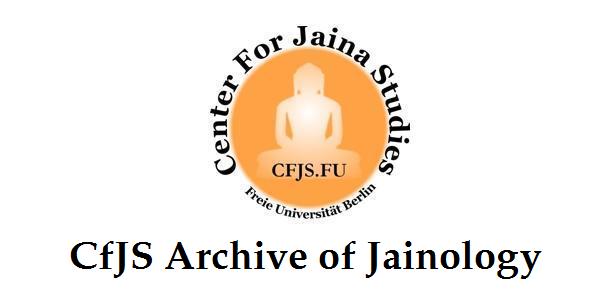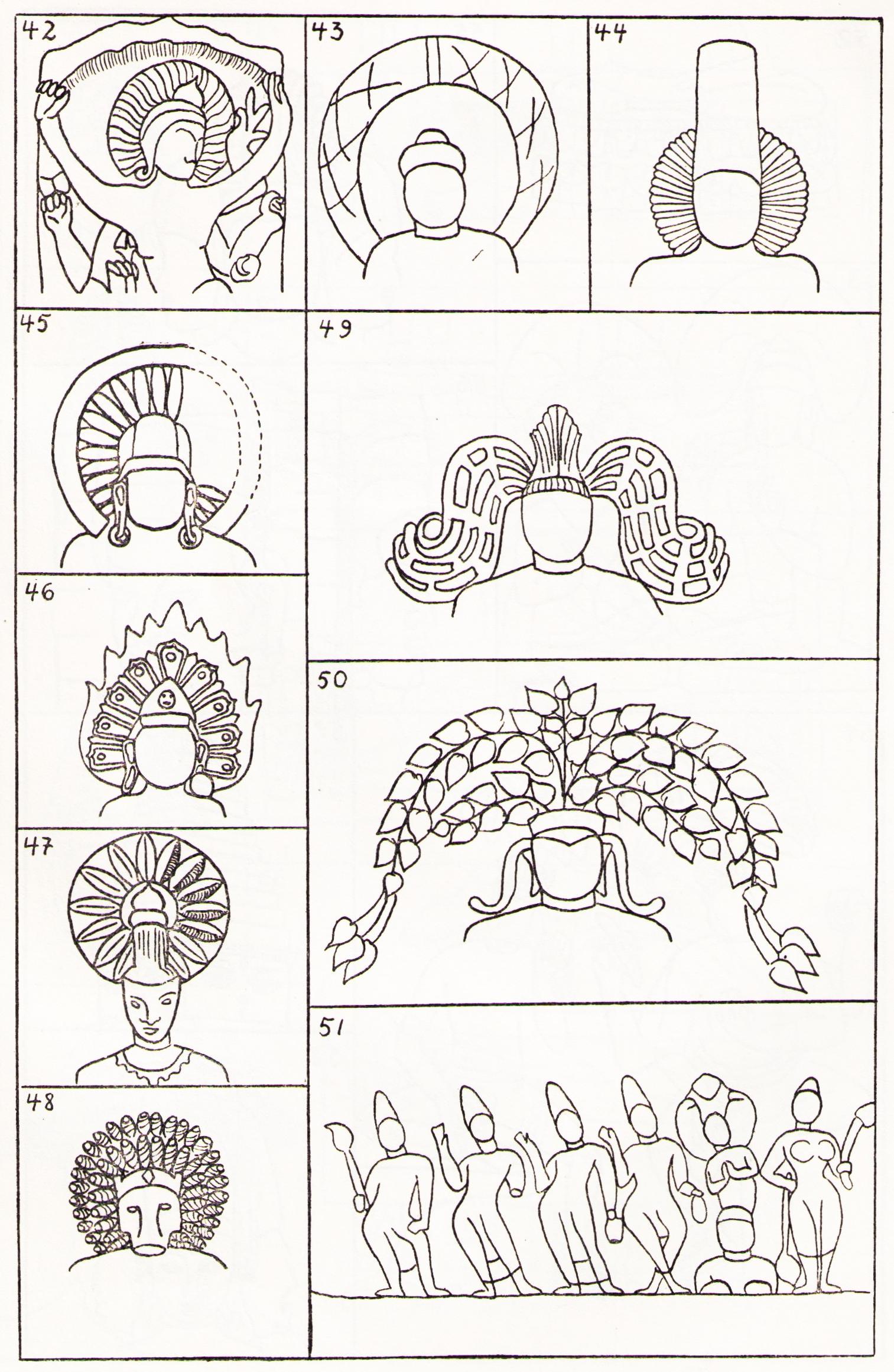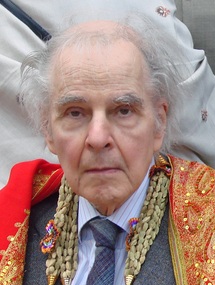
The paper was published in Bulletin of the Deccan College Research Institute 20 (S.K. De Felicitation Volume), Poona 1960, pp. 164-248.
Distinction in Indian Iconography
Figures 42-51:

42. | Śiva's Gajāsurasaṁhāramūrti. Tiruchcheṅgāṭṭaṅguḍi. Rao, II, I, Pl. XXXII, Fig. 2. - § 6. |
43. | Seated Buddha (Māra's attack). Mathurā. Coomaraswamy l.c. Fig. 104. - § 6. |
44. | Vaisnava god. Bādāmi. Rao, I, I, Pl. LXXV. - § 6. |
45. | Male figure belonging to a double-faced human capital at Pawaya. Annual Report (Gwalior) 1927/28, Pl. VI, a. Cf. the Gupta pillar at Eran. A human figure with an elaborate halo (substitute for the cakra?) stood also on a Gupta pillar at Sāñcī (Marshall-Foucher, Sāñchī III, Pl. 108b); the figure represented is in that case Vajrapāṇi. It seems that more than one deity could be shown in this way. - § 6. |
46. | Śaiva goddess. Tiruppālatturai. Rao I, II, Pl. CVI. - § 6. |
47. | Viṣṇu. Rungpur. Banerjea Pl. XXII, 3. - § 6. |
48. | Vārāhī. Puri. Banerjea Pl. XLIV, 3. - § 6. |
49. | Śiva's Dakṣiṇāmūrti. Madras. Rao II, I, Pl. LXXV, 2. - § 6. |
50. | Śiva's Daksināmūrti. Nafijangodu. Rao II, I, Pl. LXXIX. - The two projections from head outward seem to represent the jaṭā. - § 6. |
51. | Five grahas. Deogarh (lintel of the inner door-frame of temple No. 12). - § 21. |
 Prof. Dr. Klaus Bruhn
Prof. Dr. Klaus Bruhn